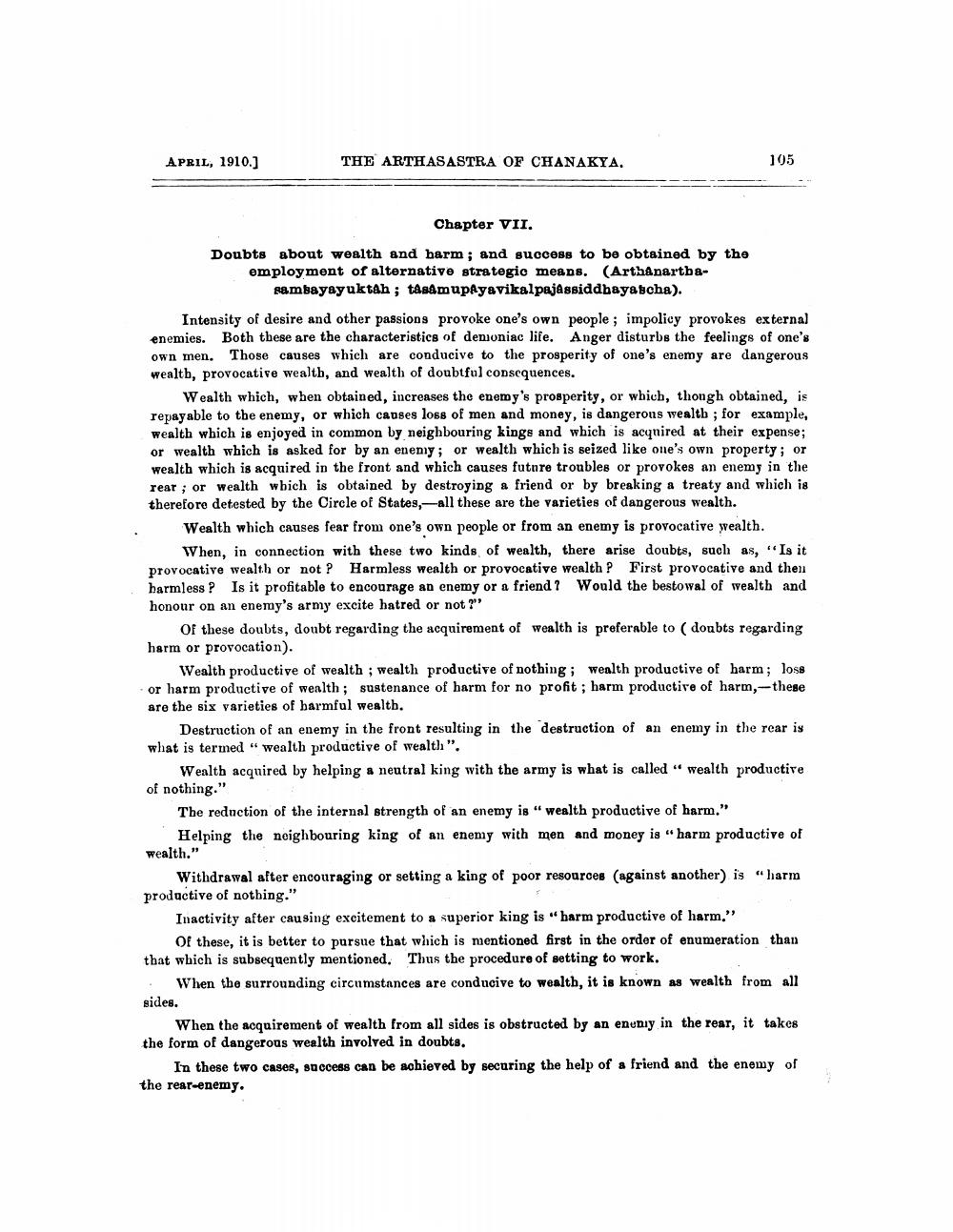________________
APRIL, 1910.)
THE ARTHASASTRA OF CHANAKYA.
105
Chapter VII.
Doubts about wealth and harm; and success to be obtained by the employment of alternative strategic means. (Arthanarta
sambayayuktah ; tasamupayavikalpajassiddhayagcha).
Intensity of desire and other passions provoke one's own people; impolicy provokes external enemies. Both these are the characteristics of denioniac life. Anger disturbs the feelings of one's own men. Those causes which are conducive to the prosperity of one's enemy are dangerous wealth, provocative wealth, and wealth of doubtful consequences.
Wealth which, when obtained, increases the enemy's prosperity, or which, thongh obtained, is repayable to the enemy, or which causes loss of men and money, is dangerous wealth; for example, wealth which is enjoyed in common by neighbouring kings and which is acqnired at their expense; or wealth which is asked for by an enemy; or wealth which is seized like one's own property; or wealth which is acquired in the front and which causes futnre troubles or provokes an enemy in the rear; or wealth which is obtained by destroying a friend or by breaking a treaty and which is therefore detested by the Circle of States, all these are the varieties of dangerous wealth.
Wealth which causes fear from one's own people or from an enemy is provocative yealth.
When, in connection with these two kinds of wealth, there arise doubts, such as, "Is it provocative wealth or not? Harmless wealth or provocative wealth P First provocative and then harmless? Is it profitable to encourage an enemy or a friend? Would the bestowal of wealth and honour on an enemy's army excite hatred or not?"
Of these doubts, doubt regarding the acquirement of wealth is preferable to ( doubts regarding harm or provocation).
Wealth productive of wealth ; wealth productive of nothing; wealth productive of harm; lose or harm productive of wealth ; sustenance of harm for no profit ; harm productive of harm,-these are the six varieties of harmful wealtb.
Destruction of an enemy in the front resulting in the destruction of an enemy in the rear is what is termed "wealth productive of wealth".
Wealth acquired by helping a neutral king with the army is what is called " wealth productive of nothing."
The reduction of the internal strength of an enemy is " wealth productive of harm."
Helping the neighbouring king of an enemy with men and money is "harm productive of wealth."
Withdrawal after encouraging or setting a king of poor resources (against another) is "harm productive of nothing."
Inactivity after causing excitement to a superior king is "harm productive of harm."
Of these, it is better to pursue that which is mentioned first in the order of enumeration than that which is subsequently mentioned. Thus the procedure of setting to work. • When the surrounding circumstances are conducive to wealth, it is known as wealth from all sides.
When the acquirement of wealth from all sides is obstructed by an enuniy in the rear, it takes the form of dangerous wealth involved in doubts.
In these two cases, success can be achieved by securing the help of a friend and the enemy of the rear-enemy.




